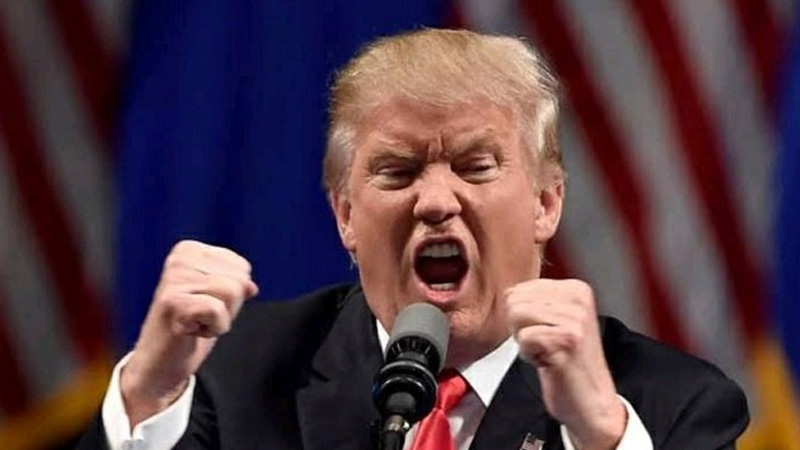Trump’s January 6 Cover-Up Crumbles as Secret Service’s Refusal Reveals Startling Secrets

Photo: Drew Angerer/Getty Images
According to a report by Newsweek on Thursday, August 22, 2024, former President Donald Trump’s attempts to conceal crucial details about the January 6 Capitol riot are unraveling as the Secret Service’s refusal to provide documents exposes surprising revelations.
The ongoing lawsuit against Trump, filed by police officers and lawmakers affected by the January 6 insurrection, has hit a significant roadblock due to the Secret Service’s resistance to subpoenas.
Both Trump’s legal team and the plaintiffs have been unable to obtain vital records from the Secret Service and Washington D.C.’s Metropolitan Police Department, hampering their efforts to build their respective cases.
The Secret Service has pushed back against the subpoena, claiming that the request for documents is too broad and lacks specificity.
This development has raised eyebrows and fueled speculation about what potentially damaging information these documents might contain.
Judge Amit Mehta, overseeing the case, learned that the deadline for responses to the subpoenas had passed on June 18, with no action taken.
Concerned by the lack of progress, Judge Mehta announced on August 6 that he would personally contact the D.C. Attorney General’s Office to determine if the subpoenas were lost in transit or if the agencies were deliberately avoiding compliance.
A week later, on August 13, Trump and the Secret Service submitted a joint status report, shedding light on the agency’s resistance to the document requests.
The report stated, “The federal government was unaware of defendant’s subpoena until defendant raised the issue during the hearing on August 6, 2024. After the hearing, counsel for defendant provided a copy of the subpoena to undersigned counsel for the government, who in turn alerted the U.S. Secret Service.”
It further explained, “The Secret Service’s response stated that the subpoena was overbroad and that defendant had failed to submit a Touhy request or otherwise comply with its Touhy regulations.”
A Touhy request, named after a Supreme Court case, is a formal procedure for obtaining official information to support a lawsuit where the government is not directly involved.
The joint report also revealed Trump’s intention to pursue the documents, stating, “Defendant has stated that it intends to pursue documents from the Secret Service and will promptly submit a Touhy request along with an appropriately narrowed subpoena in response to the objections identified by the Secret Service.”
Judge Mehta, determined to keep the case moving forward, issued an order on August 19 directing Trump’s lawyers to provide a status update on their efforts to obtain the requested records.
The judge’s order read, “Defendant Trump shall file a Status Report by August 29, 2024, which updates the court on his efforts to obtain records from the Secret Service and the D.C. Metropolitan Police Department.”
This lawsuit, known as Lee vs. Trump, originated from complaints filed by Democratic Party members of Congress, including Representative Bennie Thompson, the former chairman of the January 6 Committee, and California Congresswoman Barbara Lee.
Nine additional members of Congress have since joined the lawsuit, along with police officers who were on duty during the Capitol riot.
The case also names pro-Trump groups such as The Proud Boys and The War Boys as defendants, further complicating the legal landscape.
The plaintiffs argue that the January 6 attack impeded their ability to carry out their official duties as members of Congress.
They are utilizing a law from 1871, originally enacted to prevent the Ku Klux Klan from intimidating lawmakers, to pursue their case against Trump and his supporters.
The Secret Service’s reluctance to provide documents has sparked intense debate about the agency’s role in protecting former presidents and its obligations to assist in legal proceedings.
Some legal experts speculate that the agency may be attempting to shield potentially embarrassing or incriminating information about Trump’s actions on January 6.
Others argue that the Secret Service is simply following established protocols to protect sensitive information related to presidential security.
The standoff between the Secret Service and the court has raised questions about the balance between national security concerns and the pursuit of justice in high-profile cases involving former presidents.
As the legal battle continues, both sides are grappling with the challenge of building their cases without access to potentially crucial evidence.
The plaintiffs argue that the requested documents could provide valuable insights into Trump’s state of mind and actions leading up to and during the Capitol riot.
Trump’s legal team, on the other hand, maintains that the documents could help exonerate the former president by demonstrating that he did not actively encourage or participate in the violence.
The Secret Service’s refusal to comply with the subpoenas has also reignited discussions about the agency’s transparency and accountability, particularly in matters involving potential misconduct by those it is tasked with protecting.
Critics argue that the agency’s stance undermines the principles of open government and obstructs the pursuit of truth in a case of significant national importance.
Supporters of the Secret Service contend that the agency must maintain strict confidentiality to effectively carry out its mission of protecting current and former presidents.
As the August 29 deadline for Trump’s status report approaches, legal observers are eagerly anticipating new developments in this high-stakes legal battle.





